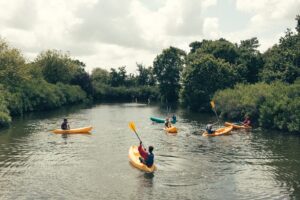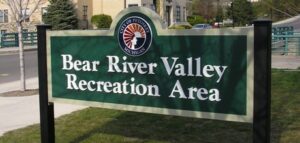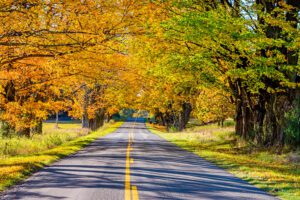Photo by the Mackinaw Area Visitors Bureau
Whether it is spelled Mackinaw as in Mackinaw City or Mackinac as in Mackinac Island, they are pronounced the same way: Mack-i-naw. Why? It is because of the area’s rich history with the Native Americans, French, and British.
The area was named Michilimackinac by the Native Americans and when the French built a fort here in 1715, they recorded the name with a “c” on the end as a French word with an “aw” sound would be pronounced. Many guests to the area mispronounce Mackinac by saying “Mack-i-nack.” The “c” on the end of this word is instead pronounced as “aw.”
The word became shortened to Mackinac. The fort was moved on the winter ice to the island across the straits which became known as Mackinac Island.
Edgar Conkling was the founder of the city in 1857 and he changed the name to Mackinaw to reflect how the word actually sounds. Thus, in this part of Michigan, there is Mackinac Island, the Mackinac Bridge, the Straits of Mackinac, Mackinaw City, and the Icebreaker Mackinaw and they are all pronounced the same way: Mack-i-naw. There is no Nack in Mackinaw or “aw”! Pronounce it Mack-i-knack and you’ll give yourself away as a tourist who doesn’t know how to pronounce the place that you’re visiting…..

Northern Michigan has many varied settings for kayaking- whether it by river, one of the inland lakes, or Lake Michigan,

This 36 acre, 1.5 mile long Bear River Valley in Petoskey is truly spectacular and filled with natural beauty and things to do.

Disc golf is hot everywhere and especially in Northern Michigan because of it’s many courses and beautiful scenery.

West Michigan is home to numerous artists with so many different talents. Groovy music, vivid paintings, gorgeous photography, and more!

Take a beautiful color tour as you travel under a tunnel of colorful trees along M-119 from Harbor Springs to Cross Village.

Built during World War II to haul heavy materials during the winter, the Icebreaker Mackinaw was in service for 62 years then became a museum.